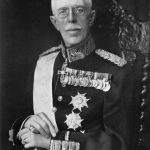
A History of United States Policy Towards Haiti
library.brown.edu/create/modernl…
By Ann Crawford-Roberts
(continued 2/2)
Foreign Aid
Haiti holds many records: the poorest nation in the Western Hemisphere and the first nation of former slaves, for example.

library.brown.edu/create/modernl…
By Ann Crawford-Roberts
(continued 2/2)
Foreign Aid
Haiti holds many records: the poorest nation in the Western Hemisphere and the first nation of former slaves, for example.


Another is the highest per-capita rate of NGOs than any other nation.
Haiti is desperately poor and has horrible health statistics, so in some ways it makes sense that many non-Haitians, especially Americans given its proximity, work in NGOs in the country.
Haiti is desperately poor and has horrible health statistics, so in some ways it makes sense that many non-Haitians, especially Americans given its proximity, work in NGOs in the country.

The benefits and harms of the large numbers of foreign NGOs within the country are examined in scholarly literature (see Schuller 2007, for example).
One of the major drawbacks to the work of NGOs within the country is the vast majority of them work outside of the government,
One of the major drawbacks to the work of NGOs within the country is the vast majority of them work outside of the government,

and most are not even registered with the government. By bypassing the state, NGOs weaken it; American money, both from the federal government and from individuals, flows to NGOs and not, in general, the Haitian government, making it even harder for the state to function. 

An additional form of foreign aid has been food aid given by the federal government to Haiti.
This food aid, heavily subsidized by the U.S. federal government so that it benefits American farmers, has flooded the Haitian markets, driving prices down.
This food aid, heavily subsidized by the U.S. federal government so that it benefits American farmers, has flooded the Haitian markets, driving prices down.

This, along with environmental degradation, has forced many Haitian farmers to give up their farms and move to Port-au-Prince and its surrounding slums.
The Future of U.S.-Haitian Relations
A recent publication by the Brookings Institution with recommendations
The Future of U.S.-Haitian Relations
A recent publication by the Brookings Institution with recommendations

for the Obama administration on its policy towards Latin America stressed that the United States should be involved in facilitating elections and strengthening Parliament and political parties in Haiti (The Obama Administration and the Americas 107). 

Because of the recent devastating earthquake, priorities have certainly shifted from strengthening political institutions to providing for immediate physical needs and building up infrastructure.
With recent discussion in the Senate about Haiti becoming

With recent discussion in the Senate about Haiti becoming


“some sort of receivorship” (Senator Dodd) or “something far more draconian” (Senator Corker), it is clear that Haiti and the United States will continue to be politically and economically tied (MacFarquahar 1). 



• • •
Missing some Tweet in this thread? You can try to
force a refresh




















